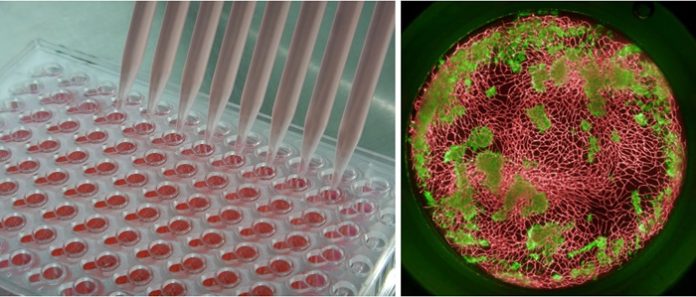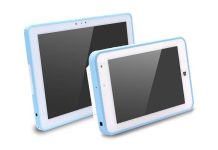Toppan Holdings, a global leader in communication, security, packaging, décor materials, and electronics solutions, announced that it has executed a research collaboration agreement with The University of Texas MD Anderson Cancer Center to evaluate Toppan Holdings’ cell culture technology as a tool for advancing personalized medicine and drug screening efforts.
The three-year collaboration will focus on using invivoid, Toppan Holdings’ proprietary 3D cell culture technology, to create in vitro ‘cancer patient avatars’ using patient-derived tumor tissue. Anticancer drugs will be administered to the avatars and the technique’s clinical utility for evaluating drug efficacy will be assessed.
The research will be led at MD Anderson by Gregory Lizee, professor of Melanoma Medical Oncology, and Scott Kopetz, professor of Gastrointestinal Medical Oncology. Through this work, Toppan Holdings aims to establish a testing method employing invivoid for selection of anticancer drugs, with the goal of improving personalized medicine opportunities.
As cancer diagnosis and treatment advances, various cancer types and related genes are being uncovered and identified in the field of fundamental research. Based on this knowledge, several types of tests are conducted to evaluate the efficacy of anticancer drugs. These include genetic testing and testing using mice into which patient tissues have been implanted, known as patient-derived xenograft (PDX) mouse models.
However, it is difficult to select anticancer drugs using genetic information alone, and the use of PDX mouse models is not only very costly but has also presented challenges such as low processing efficiency when evaluating drug efficacy.
To address these issues, Toppan Holdings has collaborated with professor Michiya Matsusaki of Osaka University’s Graduate School of Engineering to develop invivoid, a 3D cell culture technology that makes it possible to replicate biological tissue. Toppan Holdings is also using invivoid in joint research with the Japanese Foundation for Cancer Research (JFCR) to compare PDX mouse models with patient avatars for 20 cancer cases, with positive results having been confirmed for the efficacy of a cumulative total of 56 sets of anticancer drugs. Toppan Holdings and JFCR are aiming for the technique to be recognized as a form of advanced medicine in Japan in 2025.
Building on this background, Toppan Holdings aims to use invivoid to culture patients’ cancer cells outside the body and enable accurate evaluation of anticancer drugs. Through research activities, Toppan Holdings aims to acquire CLIA lab certification, launch a cancer testing business in the US, and provide personalized cancer care in which optimal anticancer drugs can be selected for each individual patient.
Examining the clinical utility of cancer patient avatars in the evaluation of anticancer drugs:
Anticancer drugs will be evaluated by using invivoid to create cancer patient avatars composed of 3D cells that replicate the cancer tissue of colorectal and lung cancer patients. Approximately 100 cancer patient avatars are created on each palm-sized plate for the process.
Examining the clinical utility of cancer patient avatars in the evaluation of immunotherapeutic drugs: In the evaluation of immunotherapeutic drugs being researched by MD Anderson, new drugs will be evaluated using cancer patient avatar models that have been given immune functions.
Toppan Holdings will evaluate anticancer drugs for the treatment of colorectal and lung cancer. To do so, Toppan Holdings will use invivoid and employ a method for using cancer patient avatars to assess pharmacological effects, which has been demonstrated in joint research with JFCR using invivoid. Through the project, Toppan Holdings aims to compile evidence for entry into the testing business in the US.
Toppan Holdings intends to evaluate the use of invivoid in clinical research on assessment of anticancer drug efficacy and aims to launch a business using invivoid to support personalized cancer care in the US in 2026.








